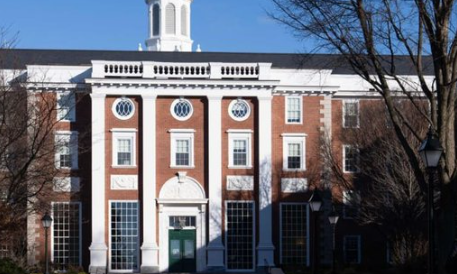Harvard University’s recent release of demographic data for the Class of 2028 has sparked national discussion, particularly due to the noticeable decrease in the share of Black students, from 18 percent to 14 percent. While this figure has captured attention, it’s important to recognize that such statistics, while informative, offer limited insight into the complex admissions process at elite institutions like Harvard.
America Is Aging Into a Housing Crisis for Older Adults – A new Harvard report highlights the housing challenges facing a fast-growing demographic amid the broader US affordability problem.https://t.co/ejoZjJylVq pic.twitter.com/bwBMbudk5R
— ForeverHome (@foreverhomeus) September 10, 2024
The data raises questions without providing many definitive answers. Some may be quick to connect the decrease in Black students to last year’s Supreme Court decision in SFFA v. Harvard, which struck down race-conscious admissions practices. However, jumping to conclusions about cause and effect based on this single data point is misguided. Similarly, the unchanged share of Asian students and the rise in Hispanic students invite speculation about the impact of the ruling, but it is premature to draw clear lines between the Court’s decision and the new numbers.
One year of data cannot conclusively tell us how the admissions landscape has shifted. The factors behind these demographic changes are multifaceted and require more nuanced examination. In reality, what matters more than the statistics themselves are the deeper issues related to campus culture and representation that go beyond mere percentages.
As revealed during the Students For Fair Admissions case, Asian American applicants were historically disadvantaged in Harvard’s admissions process, receiving lower personal ratings on average. These biases likely stem from harmful stereotypes, and although changes have been made, the fight against such discrimination must continue. The university has a responsibility to ensure that all students, regardless of race, feel welcome and valued on campus.
Equally concerning are narratives that seek to diminish individuals’ accomplishments based on race. The criticism faced by Harvard’s former president, Claudine Gay, who was accused of benefiting from diversity initiatives, reflects a larger societal issue. This same prejudice affects many students of color, making it imperative that we stand against such harmful rhetoric.
ICYMI: A star professor’s defamation claims against Harvard and the data bloggers who said her work contained falsified data have been dismissed. @NidhiSubs reports for #WSJScience https://t.co/qCk0vX3CYz via @WSJ
— Jo Craven McGinty (@mcjomcg) September 13, 2024
Harvard should be commended for its efforts to broaden outreach to students from diverse backgrounds, but there is more work to be done. The focus should extend beyond race, reaching students from various socioeconomic backgrounds and different types of schools. This is where Harvard can truly make strides toward fostering a more inclusive and representative student body.
In conclusion, while demographic shifts in admissions data may grab headlines, they are only part of a larger conversation. True progress requires a sustained commitment to creating a welcoming environment for all students and ensuring equitable representation across the board. History will remember those who look beyond surface-level statistics and engage with the deeper issues at hand.
Key Points:
i. Harvard’s Class of 2028 demographic data shows a decrease in Black students, sparking discussions, but these statistics offer limited insight into admissions complexities.
ii. Some may attribute this drop to the SFFA v. Harvard decision, but drawing conclusions from one year of data is speculative and premature.
iii. Biases against Asian American applicants, revealed during the lawsuit, highlight the need for ongoing vigilance against discriminatory practices in admissions.
iv. Narratives diminishing the qualifications of students of color, like the criticism faced by former Harvard President Claudine Gay, must be rejected.
v. Harvard must continue expanding outreach to students from various socioeconomic and educational backgrounds to truly achieve diverse representation.
Charles William III – Reprinted with permission of Whatfinger News



